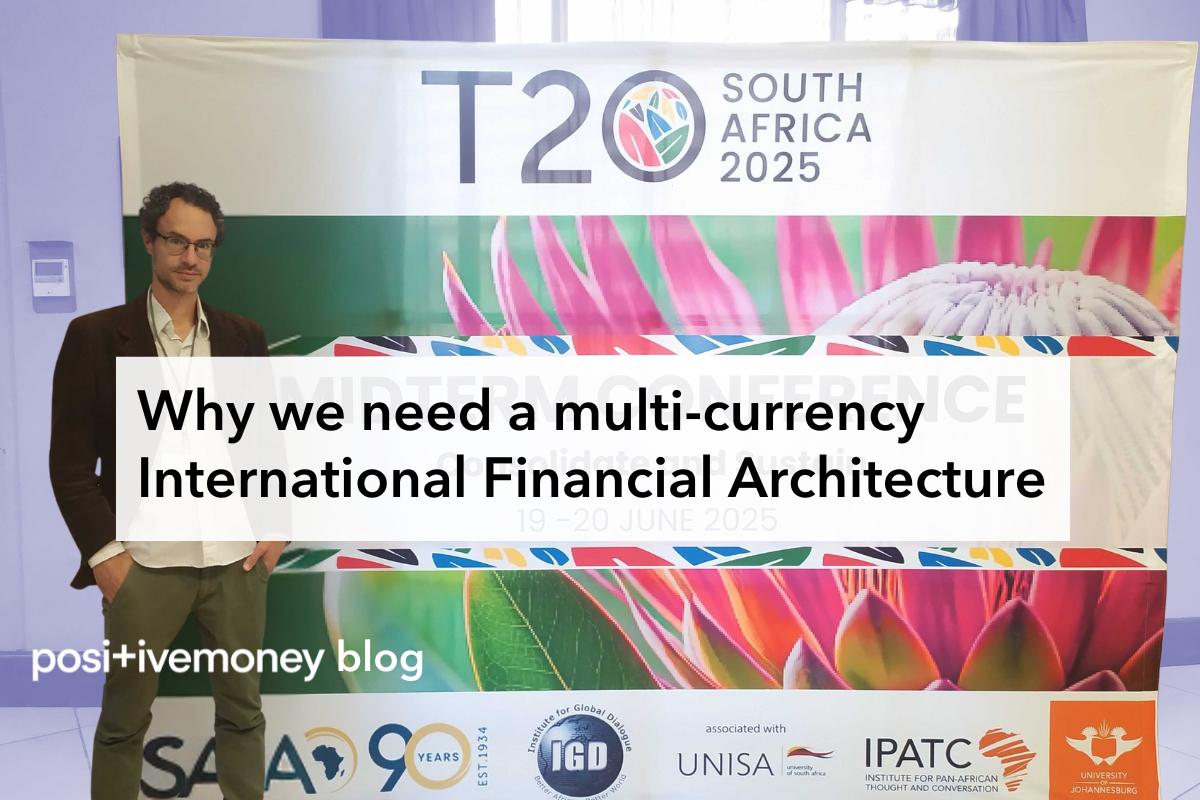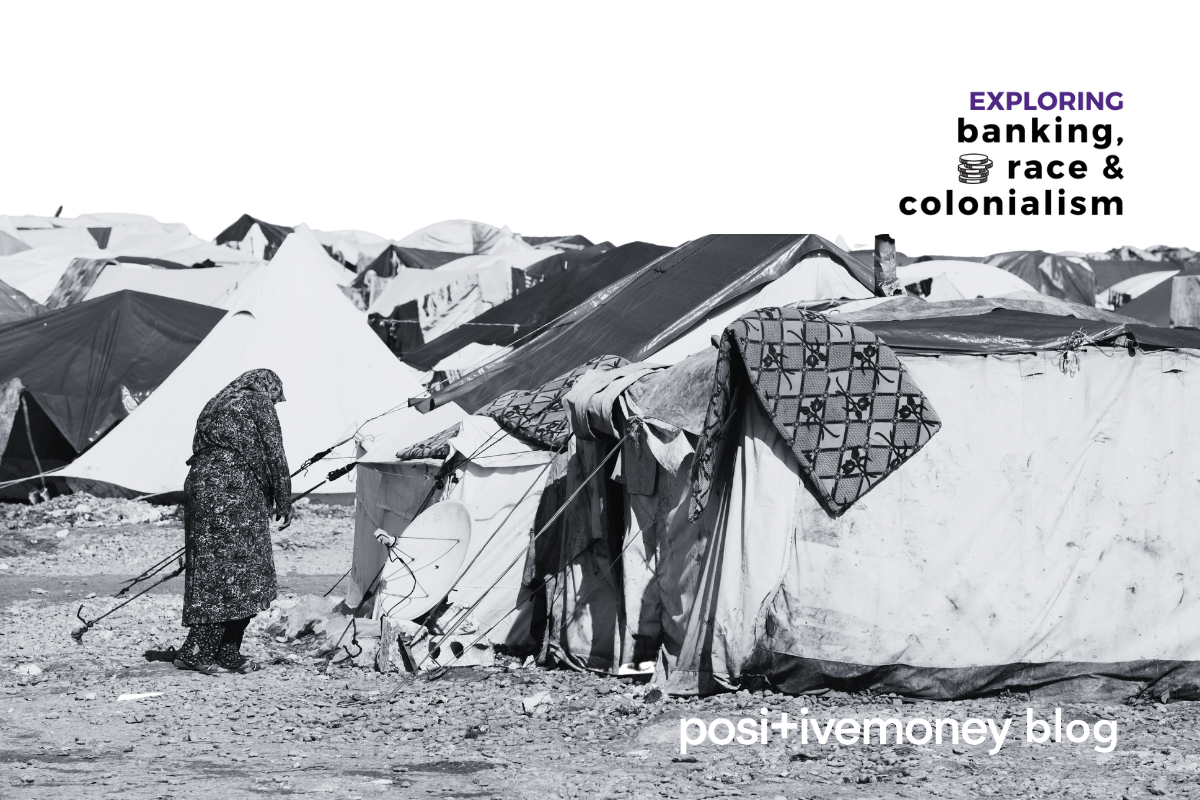
EUUK
3 July 2025
Climate reparations are the responsibility of rich countries and corporations for their past and present exploitation of Black and Indigenous communities in the Global South. Climate reparations completely upend the misguided notions of ‘charity’ and ‘aid’, seeking instead to reconfigure political and social relations with formerly colonised people.
As rich and poorer economies reel in the face of over 4.5 million deaths globally from COVID-19, leaders and policy makers are also contemplating a “green” future. This crisis has revealed the major racial and class disparities across the global North and even sharper divides with the global South. To meet the challenge of the climate crisis, it is essential to reflect on the historical circumstances that have led us here. Rich economies and major financial corporations must also contend with their past and ongoing contribution to the climate crisis. The United States for instance is responsible for a cumulative share of 25% of global greenhouse gas emissions, and European countries have collectively emitted 22%.
Investments in fossil fuels extraction and exploitation date back to the 18th, but were made most predominant in the 20th century. Major oil companies were funded by the British government, such as the Anglo-Persian Oil Company (which became BP), of which the government at one time controlled a 51% share. Another major company was Standard Oil, a US corporation founded by John D. Rockefeller, which once controlled more than 90% of the oil production, marketing and distribution in the United States. These two major companies were supported by major financial institutions, laws and governments, and were among the major seven companies that controlled more than 85% of proven oil reserves from the 1940s to 1970s. More recently, in the Banking on Climate Change 2021 report, it was revealed that 60 major financial corporations and banks, including JP Morgan, Chase, Wells Fargo, Bank of America, Barclays, Morgan Stanley and and Citi — all headquartered in the global North — have collectively invested over US$3.8 trillion in fossil fuel extraction and exploitation since the 2015 Paris Climate Agreement.
Last year’s Black Lives Matter rebellions enlivened a global consciousness and discussion about structural racism, and even provoked apologies from major financial institutions for their material role in financing and having benefitted from the Atlantic slave trade. Alongside the role these institutions played in Black enslavement and the mass violence and genocide of indigenous peoples, we must recognise the very urgent challenge of climate change in Black communities and societies. Fossil fuel companies like Exxon Mobil, Shell, BHP Billiton and BP are among those directly responsible for more than 635 billion tonnes of greenhouse gas emissions. That figure is 71% of the total emitted since 1988. And from 1988 to 2015, just 25 major producers of fossil fuels were responsible for a full 51% of greenhouse gas emissions. We must train our eyes on the British, European and the US Federal governments which have furnished subsidies that in no small way contributed to climate change. These support packages totalled $938 billion in 2015 according to the International Monetary Fund. Furthermore, large tax breaks over many decades have enabled these corporations to exploit fossil fuels in faraway places home to Black and Brown communities.
Climate research has shown a direct link between the heightened ferocity of storms and the acceleration of climate change over the last four decades. We’ve seen a total of over 30 storms in quick succession in the 2020 Atlantic Hurricane season, overturning the lives of many, especially in African descended, Latino and racialised communities.
There is another aspect of the story which is becoming clearer from a historical perspective. That is colonialism. Mal-developed infrastructure and unsustainable patterns of land use, perpetrated by some of the richest countries on earth today, are directly linked to the violence of storms, droughts and flooding due to the climate crisis. The richest countries today that benefitted materially from enslaving Black people, both in the United States and in the former British, German and French empire, have also left the largest carbon footprints. It is only after 2011 that the United States was overtaken by China in terms of the latter’s climate impact.
The situation is stark in island communities and impoverished neighborhoods. In 2017, Hurricanes Maria and Irma waded through the Caribbean Sea, causing untold damage to Puerto Rico, the Virgin Islands, Dominica, and wiping out Barbuda, at a cost of more than $100 billion. Dominica is still owed more than $1 billion in losses due to Hurricane Maria. Again in 2019, Hurricane Dorian cost $3.4 billion in damages and losses to the Bahamas and an additional $10 billion to the continental US, with the poorest and marginalised communities most affected. Between 2000 and 2015, 33% to 200% of the economic output of Caribbean islands have been wiped out. In 2016 alone, the average annual loss due to hurricanes alone in the Caribbean was US$835 million. The losses and damages for historical responsibility can and should be placed at the doorsteps of industrialised states.
Last year, the UK government closed its Department of International Development to merge it within its Foreign and Commonwealth Office. This represents an ongoing manipulation by rightwing politicians to deflect the UK’s historical and ongoing role in Black exploitation and dispossession. One can argue that this department did little in the first place to acknowledge the violent and harmful impacts colonisation has had on its former colonies, and in fact sought, like the Commonwealth organisation, to deepen its neocolonial, exploitative relationships with the global South. The UK’s infamy as the largest imperial power, and fifth largest greenhouse gas emitter, is not an accident of history but a clear outcome of its role in establishing and upholding global white supremacy. Major aid or charity appeals for ‘climate finance’ that are often promoted after major disasters are not synonymous with climate reparations. Climate reparations completely upends the misguided notions of ‘charity’, ‘aid’ and ‘voluntary pledges’, and instead seeks to reconfigure political and social relations with formerly colonised people. After countless environmental disasters, reparations would begin the process of acknowledging the responsibility of industrialised nations to meet the obligation of paying their debts to these societies that were left environmentally degraded, socially exploited and acutely exposed to perennial climate catastrophes.
Unfortunately, the international community has also shown little inclination to promote justice in this matter. Existing efforts are slow moving, and fail to address the enduring losses associated with climate change. No international financial mechanism currently exists to compensate countries that have faced the brunt of the climate crisis. Existing inequalities rooted in past and present exploitation make these effects of the climate crisis ever more shocking and calamitous every hurricane or monsoon season. To date, we have seen only meagre pledges that do not meet even a quarter of the true recovery needs, and do not come close to addressing the ongoing loss and damage over many decades. This is a deeply unjust situation for Black peoples in island communities and exploited countries across the world.
Instead of acknowledging these failures and taking steps towards genuine climate reparations, the International Monetary Fund (IMF) has offered more debt to these major affected countries. The IMF has offered a whopping US$200 million loan to the Bahamas whose overall public debt has increased by more than $500 million in the aftermath of Hurricane Dorian and the COVID-19 shock. After the recent economic and health impacts of COVID-19, The Bahamas have been forced to return for another $252 million with only 5 years to repay. There has been a consistent pattern of increasing debt to countries affected by the climate crisis, especially burdening Black communities — a crisis in which they had little part in creating. Industrialised nations like the United States and the UK must come to terms with their role in perpetuating a racist order in which inequalities are generated even more starkly during major climatic events from which fossil fuel and major financial corporations benefit. Rich countries must pay for the economic and environmental destabilisation that fiercely visit island communities, black neighbourhoods and relatively marginalised countries every year. The way we start to remedy these problems is not piling on more debt and devaluing the Black people’s lives abroad, but by correcting and repairing the harm that colonisation cum climate change has meted out, through climate reparations.
Dr Perry is a political economist examining race, finance, and climate justice with a focus on reparations as a route to social justice in Caribbean communities. They are incoming Assistant Professor in Africana Studies at Williams College from January 2022. Their current research entitled “Climate Justice, Reparations and Reparative Ecologies in the Caribbean” analyses the constraints and costs imposed by global institutions and corporations on self-determination and social justice for the Caribbean and the wider African diaspora in the context of climate breakdown.
